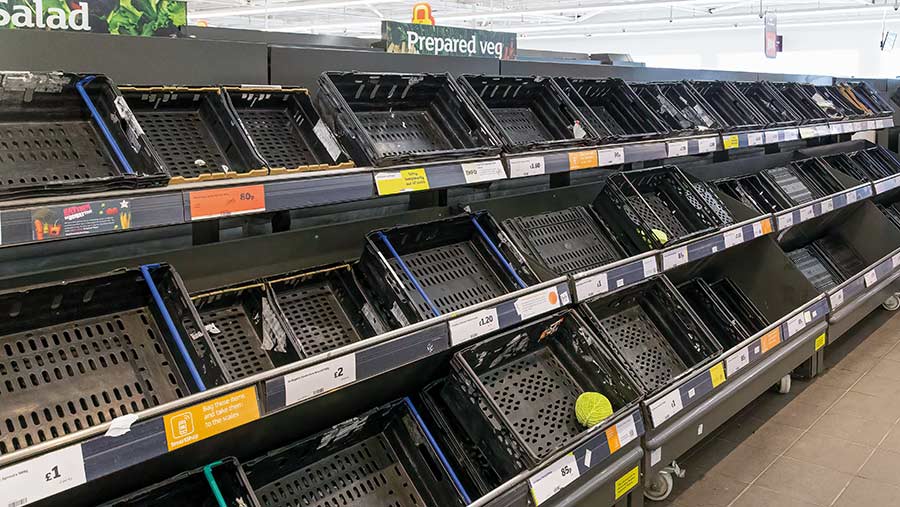Opinion: Fuel and food crisis close to ‘criminal neglect’
 © Magicbones/Adobe Stock
© Magicbones/Adobe Stock The question being asked on the street is whether some people can afford to eat or heat their homes.
Clearly in a civilised society it is essential to be able to do both. But the dilemma remains, even in working households.
And I don’t believe all the TV pictures of pensioners wrapped in blankets with the heating turned off are staged.
See also: Opinion – Putin’s attempts at empire building will affect us all
Of course, the situation in which we, and the rest of the world, find ourselves is unprecedented in modern times.
The Covid pandemic followed by war in Ukraine is almost as bad as it could be.
But the signs of a possible conflict were there long before the war started, and all through the lockdown few preparations were made by the government despite many warnings by the NFU and others.
Ministers seemed to think Brexit would cure any problems. But as most of those who supported leaving the EU now admit, it made things worse.
A recent estimate of UK food self-sufficiency put it at 52% for the current year.
If that figure turns out to be accurate, it will be a dramatic reduction from around 60% over the past few years and a fall from near 80% in the late 1980s.
Through it all, governments of all persuasions sat on their hands, confident we could import anything we needed.
As it became clear in recent few weeks that this belief was false, Defra issued a few edicts, such as allowing farmers (with conditions) to spread FYM after harvest (which should never have been banned in the first place); and permitting (for a limited period) the use of urea, because ammonium nitrate prices had gone through the roof. Useful, but hardly earth-shattering.
But the elephant in the room was the fact that one of the two UK ammonium nitrate factories was mothballed and the other was working at 50% capacity because of the price of imported gas.
The government held a debate on the food crisis and the PM turned up. Neil Parish, chairman of the Environment, Food and Rural Affairs committee, asked what he was going to do about the cost of fertiliser.
Boris Johnson bumbled a bit, complimenting Parish but saying very little.
He failed to answer the question, but said his grandfather had been a farmer, “but not a very successful one”, which was hardly relevant but made people laugh. I suppose that’s why they vote for him.
Parish has tackled both Johnson and George Eustice recently, not least in his committee’s scathing report on the current crisis which warned of the danger of severe domestic food shortages.
But both Johnson and Eustice continued the pretence that there was nothing to worry about and the government was doing all it could.
Meanwhile, the EU has found half a million euros to help cut the costs of farm inputs, especially fertilisers.
It’s not much, spread around all EU member states, but at least it’s some help and a lot better than Defra’s.
Minette Batters, reflecting on the long list of problems over recent months, has called government inaction “appalling complacency”.
I would go further and, bearing in mind that the crisis will inevitably get worse, I would say it is close to criminal neglect.

